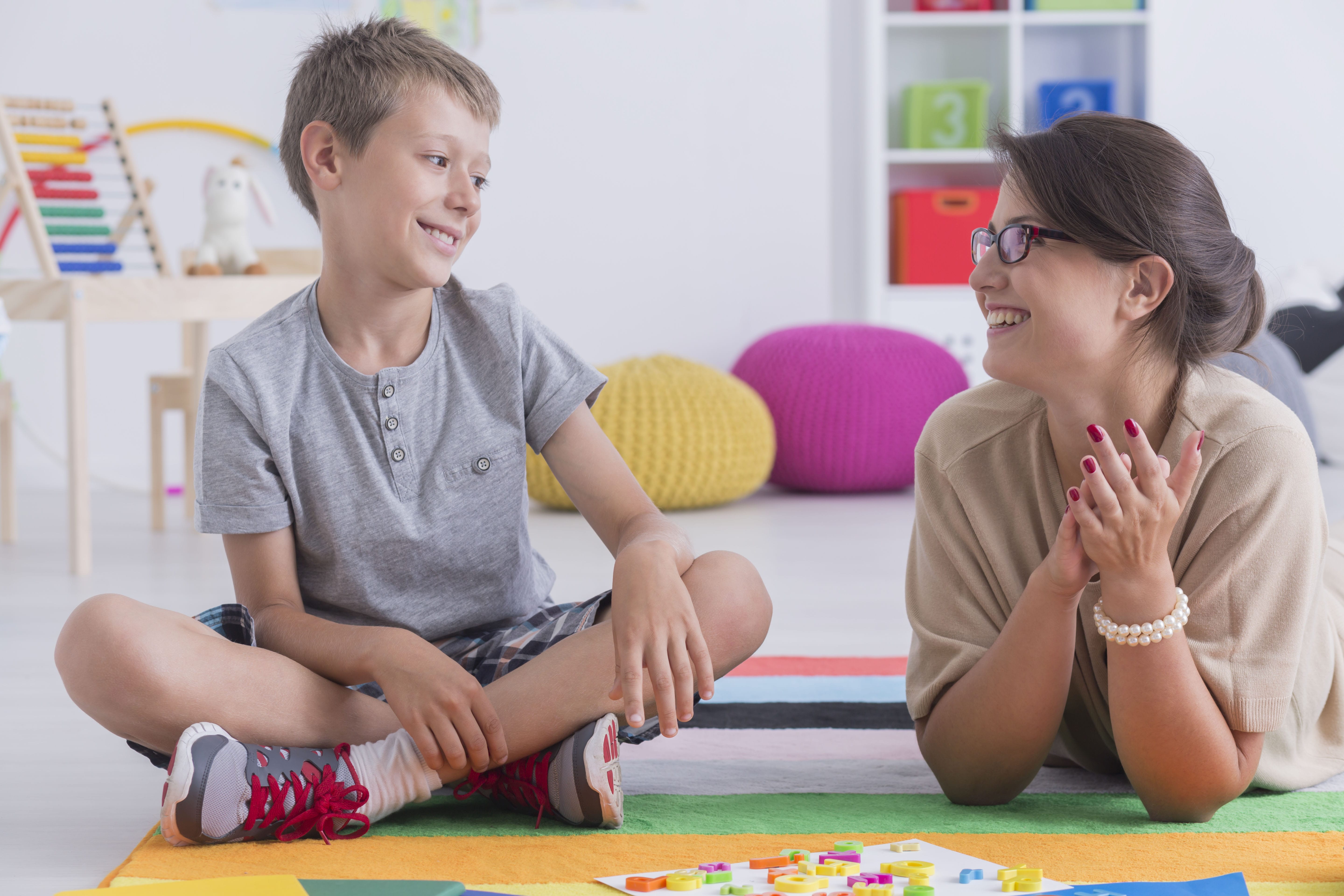What Is the Approach to Parenting Emotionally Special Children?
To parent emotionally special children effectively, focus on understanding their unique needs like emotional regulation and sensory considerations. Create a supportive environment with safe emotional spaces, trust, and empathy. Use active listening, empathy, and encourage self-expression through creativity. Employ positive reinforcement tailored to their motivators. Develop coping skills and mindfulness techniques. Seek professional guidance as needed for therapy or counseling. Support their autonomy and self-expression. Remember to prioritize your self-care for a balanced approach. These strategies can help you navigate the complexities of parenting emotionally special children with care and empathy.
Key Takeaways
- Focus on emotional regulation and identifying triggers.
- Create safe sensory-friendly spaces.
- Communicate actively with empathy and validation.
- Encourage self-expression through creative outlets.
- Seek professional guidance for support and therapy options.
Understanding Emotional Special Needs

To effectively navigate the world of parenting emotionally special children, it’s essential to first grasp a deep understanding of their unique emotional special needs. Emotional regulation plays an essential role in the daily life of these children. They may struggle to manage and express their emotions in a typical manner, requiring additional support and guidance from caregivers.
Understanding their individual triggers, coping mechanisms, and emotional responses is important in providing effective care and fostering healthy emotional development.
Furthermore, sensory processing is another key aspect to take into account when parenting emotionally special children. Many of these children may experience sensory sensitivities or seek sensory stimulation differently from others. Being aware of how they perceive and process sensory information can help in creating environments that are conducive to their well-being.
Adjustments such as providing sensory-friendly spaces or tools can greatly benefit these children in managing their sensory needs effectively. By acknowledging and addressing emotional regulation and sensory processing challenges, parents can better support the unique requirements of their emotionally special children.
Building a Supportive Environment

To effectively support emotionally special children, creating safe emotional spaces and encouraging self-expression are paramount.
By fostering an environment where emotions are validated and accepted, you can help your child feel understood and supported.
Building a supportive atmosphere enables your child to develop healthy coping mechanisms and build resilience.
Safe Emotional Spaces
Creating safe emotional spaces is essential for parenting emotionally special children as it fosters a supportive environment where they can freely express and process their feelings. Emotional regulation plays a vital role in helping children navigate their emotions effectively. By providing a safe emotional space, parents can assist their children in developing the skills needed to regulate their emotions and cope with challenging situations.
Trust building is another key component of establishing safe emotional spaces. When children feel trusted and supported, they’re more likely to open up about their emotions and seek guidance from their parents. Building trust takes time and consistency in showing understanding and empathy towards the child’s feelings.
In these safe emotional spaces, parents can model healthy emotional expression and communication, which can positively impact how children learn to manage their own emotions. By prioritizing emotional safety and trust in the parenting approach, emotionally special children can feel secure in sharing their feelings and experiences, fostering a strong parent-child relationship based on understanding and support.
Encouraging Self-Expression
Encouraging self-expression in emotionally special children involves fostering a supportive environment that values and validates their feelings and thoughts. Providing creative outlets for children to express themselves can be incredibly beneficial.
Art therapy, for example, can serve as a powerful tool for self-discovery and emotional validation. By engaging in art activities, children can externalize their internal struggles, fears, and joys in a non-verbal manner, which can be especially helpful for those who find it challenging to articulate their emotions verbally.
Creating a space where children feel safe to explore their thoughts and feelings through various forms of expression is key. Encouraging them to engage in activities they enjoy, whether it’s painting, writing, music, or any other creative outlet, can help foster a sense of empowerment and self-confidence.
Effective Communication Strategies

Establishing open and honest communication channels with your emotionally special child is essential for building trust and understanding in your relationship.
Active listening and open dialogue play a vital role in effective communication strategies. When engaging in conversations with your child, practice active listening by giving your full attention, maintaining eye contact, and showing genuine interest in what they’ve to say.
Responding with empathy and validation can help your child feel understood and accepted, fostering a sense of security within your relationship.
Creating a safe space for your child to express their thoughts and emotions without fear of judgment is key. Encourage open dialogue by actively seeking their perspective, asking open-ended questions, and being receptive to their feelings.
Validate their experiences by acknowledging their emotions and showing understanding towards their struggles. By demonstrating empathy and validation in your communication, you can strengthen your bond with your emotionally special child and nurture a supportive environment for their growth and development.
Positive Reinforcement Techniques
When parenting emotionally special children, utilizing positive reinforcement techniques can be highly effective. By rewarding good behavior, you can encourage your child to continue displaying positive actions.
Additionally, fostering their self-expression and emotional resilience can help them navigate challenges with confidence and grace.
Rewarding Good Behavior
Implementing positive reinforcement techniques plays an important role in shaping and encouraging good behavior in emotionally special children. Behavior modification strategies, such as positive reinforcement, focus on rewarding desired behaviors to increase their occurrence.
When dealing with emotionally special children, it’s vital to provide specific and immediate rewards to reinforce positive actions effectively.
Positive reinforcement can come in various forms, including verbal praise, stickers, extra playtime, or small rewards tailored to your child’s preferences.
By positively reinforcing good behavior, you aren’t only encouraging your child but also helping them understand what actions are desirable.
Consistency is key when using positive reinforcement techniques, as it helps create a predictable environment for your child.
Remember that every child is unique, so it’s important to identify what motivates your emotionally special child.
Encouraging Self-Expression
Utilizing positive reinforcement techniques tailored to your emotionally special child‘s self-expression can foster a supportive environment for their emotional development. Encouraging your child to express themselves through creative outlets such as art, music, or writing can provide them with a healthy means of communication. By praising and acknowledging their efforts in these endeavors, you’re validating their emotions and empowering them to explore their inner world.
Emotional validation is vital for emotionally special children as it helps them feel understood and accepted. When your child expresses their feelings, whether positive or negative, responding with empathy and validation can strengthen your bond and boost their self-esteem. It shows them that their emotions are valid and worthy of attention.
Incorporating positive reinforcement techniques into your child’s self-expression journey can create a safe space for them to freely articulate their thoughts and feelings. By nurturing their creative outlets and providing emotional validation, you’re nurturing their emotional well-being and promoting healthy development.
Fostering Emotional Resilience
To foster emotional resilience in your emotionally special child, employ positive reinforcement techniques tailored to their individual needs and strengths. Encouraging the development of coping mechanisms and emotional regulation is essential in helping your child navigate their feelings effectively.
Positive reinforcement involves acknowledging and rewarding your child’s efforts and progress in managing their emotions. This can help boost their confidence and motivation to continue practicing healthy emotional regulation.
Additionally, incorporating mindfulness practices into your child’s routine can aid in stress management and enhance their emotional resilience. Teaching your child mindfulness techniques such as deep breathing exercises or guided imagery can provide them with valuable tools to cope with challenging emotions and situations.
Seeking Professional Guidance

Consider engaging with a qualified professional to gain valuable insights and support in managing the unique challenges of parenting emotionally special children. When seeking professional guidance, exploring therapy options and counseling benefits can greatly aid in handling the complexities that arise in raising children with emotional special needs.
Therapy options encompass a range of interventions tailored to address specific emotional or behavioral concerns. These may include individual therapy for the child, family therapy to improve communication and understanding, or parental guidance to enhance parenting skills and coping mechanisms. Engaging in therapy sessions can provide a safe space for children to express themselves, develop coping strategies, and work through emotional challenges with the guidance of a trained professional.
Counseling benefits extend beyond the child to encompass the entire family unit. Family counseling can foster stronger relationships, improve conflict resolution, and enhance overall family dynamics. By participating in counseling sessions, parents can gain valuable tools and strategies to better support their emotionally special children while prioritizing their own mental well-being.
Encouraging Self-Expression and Autonomy

When guiding the complexities of parenting emotionally special children, fostering an environment that encourages self-expression and autonomy is vital to their emotional growth and development.
It’s essential to provide your child with various creative outlets to express their feelings and thoughts. Encouraging self-discovery through activities such as art, music, or writing can help them explore their emotions in a safe and constructive manner.
Setting emotional boundaries is also necessary in promoting autonomy. By establishing clear guidelines and expectations, you empower your child to navigate their emotions independently while feeling supported. This balance between offering guidance and allowing freedom fosters a sense of independence and self-assurance in your child.
Remember to celebrate your child’s uniqueness and individuality. Encouraging them to express themselves authentically helps build their self-esteem and confidence.
Providing opportunities for self-expression and respecting their emotional boundaries are foundational aspects of nurturing your emotionally special child’s growth and development.
Practicing Self-Care as a Parent
Prioritize your well-being by incorporating self-care practices into your routine as a parent of emotionally special children. Parental boundaries are essential for maintaining emotional wellness and balance while caring for your child. Setting limits on your time, energy, and emotional resources isn’t only important but necessary to prevent burnout and make sure you can continue to support your child effectively.
Self-care as a parent of emotionally special children involves finding moments for yourself to recharge and rejuvenate. This may include engaging in activities you enjoy, seeking support from friends or professionals, or simply taking time to rest. By prioritizing self-care, you can better manage the challenges that come with raising emotionally special children.
Remember that practicing self-care isn’t selfish; it’s a fundamental aspect of being a supportive and healthy parent. By establishing and respecting your boundaries, you create a positive environment for both yourself and your child, fostering emotional wellness and balance in your family dynamic.
Frequently Asked Questions
How Can Siblings of Emotionally Special Children Be Supported?
Supporting siblings of emotionally special children is essential. Encourage open communication, validate their feelings, and provide coping strategies. Foster positive peer relationships and maintain a balance in family dynamics. Remember, their well-being matters too.
What Role Does Extended Family Play in Parenting Emotionally Special Children?
Extended family support is essential in parenting emotionally special children. Open communication fosters understanding among siblings and relatives. Sibling relationships benefit from extended family involvement, creating a network of care and empathy for the child’s unique needs.
Are There Specific Resources for Parents of Emotionally Special Children?
When raising emotionally special children, specific resources can be invaluable. Online forums and support groups offer connection and shared experiences. Therapeutic activities and counseling services provide essential tools for both you and your child’s well-being.
How Can Teachers and Schools Assist in Supporting These Children?
To support emotionally special children, teachers can collaborate with parents to create individualized plans. Schools should offer programs that cater to their needs, provide educational accommodations, and foster a supportive environment that encourages their emotional growth and well-being.
What Are Some Strategies for Managing Meltdowns and Outbursts in Public Settings?
When managing meltdowns and outbursts in public settings, remember coping mechanisms for emotional regulation. Identify sensory triggers and use calming techniques like deep breathing. Stay patient, offer support, and create a safe space for the child.
Conclusion
To sum up, parenting emotionally special children requires understanding, patience, and a supportive approach. By creating a nurturing environment, utilizing effective communication strategies, and seeking professional guidance when necessary, you can help your child thrive.
Encouraging self-expression, autonomy, and practicing self-care as a parent are also essential components in raising emotionally special children. Remember, you aren’t alone in this journey, and with the right tools and mindset, you can support your child in reaching their full potential.

Hey there! 👋 I’m a proud mom and passionate writer, sharing my parenting journey. 📝 Join me as I navigate the ups and downs of motherhood, offering tips, advice, and a sprinkle of humor along the way. 🌟







